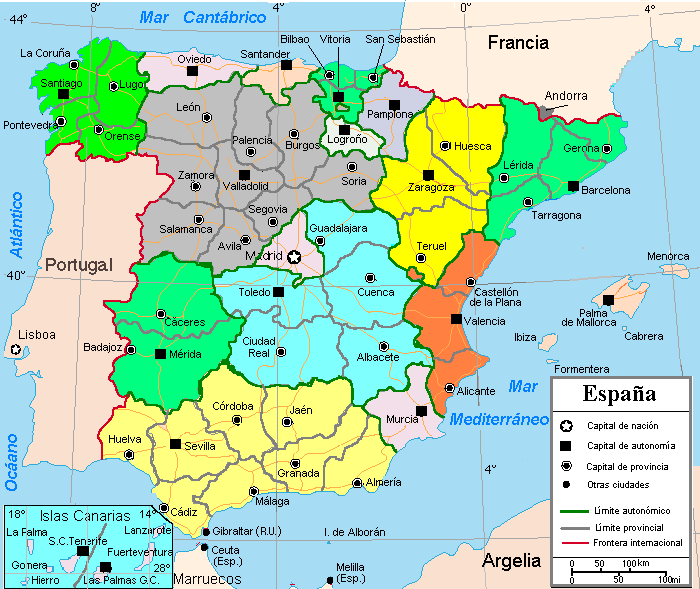|
Regionalism In Spain
Both the perceived nationhood of Spain, and the perceived distinctions between different parts of its territory derive from historical, geographical, linguistic, economic, political, ethnic and social factors. Present-day Spain was formed in the wake of the expansion of the Christian states in northern Spain, a process known as the Reconquista. The Reconquista, ending with the Fall of Granada in 1492, was followed by a contested process of religious and linguistic unification and political centralisation, which began under the Catholic Monarchs and continued intermittently into the 20th century. Peripheral nationalism in its modern form arose chiefly in Catalonia and the Basque Country during the 19th century. The modern division of Spain into Autonomous Communities embodies an attempt to recognise nationalities and regional identities within Spain as a basis for devolution of power. From the Reconquista onwards, in most parts of the peninsula, territories have identified ... [...More Info...] [...Related Items...] OR: [Wikipedia] [Google] [Baidu] |
